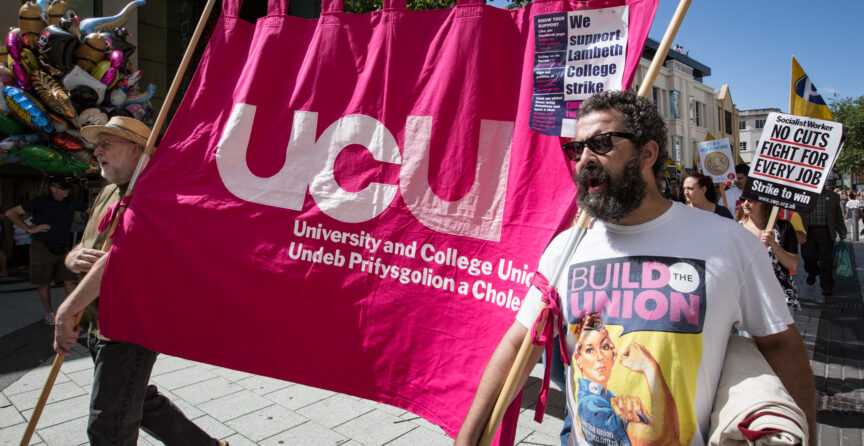Can Freelancers Strike?
With all the strikes we’ve experienced lately (and on-going), have you ever considered whether freelancers can go on strike?
Well, as a freelance photographer I can tell you I have. I don’t mean I’m on strike right now; I mean I have withdrawn my labour on occasions.
How does that work?
Obviously freelancers are less unionised than those in the public or essential sectors, so we don’t down tools (cameras) en masse, or march down Whitehall waving placards made of cardboard. That said, there are ways a freelancer can withdraw their labour if they’re not being treated or paid fairly.
The most obvious is to simply not take on badly-paid work. Any fool can fill their diary three times over with that. Making a profit is the tricky part, and working below cost never equates to making a living. Particularly true in photography and videography where the tools we use are so eye-wateringly expensive. This means making a living also has to balance with keeping kit up-to-date, in shape and insured.
If I’m approached with an assignment for which the client hasn’t properly budgeted, I’ll try to work with them to either improve the budget, or trim the brief to fit. If neither is possible, I let them know I can’t help further.
Occasionally clients will impose fees they’ve set, but that doesn’t always make them unreasonable. It depends on the work, the level of use the images will get (the licence) and the logistics of the kind of work they’re proposing. If a fee is low, but everything else fits, I’ll often take on the work. There are many factors besides the fee which can make or break a job. However if there are too many warning signs, I’ll gently let the client know I’m not the photographer for them.
Is that striking?
Perhaps not in the strict legal sense of a strike, but many professional photographers liaise through online forums of various kinds and these offer some of the same support and solidarity you can get through a union. These forums also support photographers in decisions not to take on a particular kind of work, or to reject low fees.
That last point has been particularly important in an industry where isolation is the norm. It can be very disheartening to have to reject potential work, especially if jobs have been scarce, but knowing that the client will struggle to book someone cheaper can help the individual to realise their decision was the right one.
Do clients notice?
Sometimes, but not always. Clients will experience similar inconveniences to ‘victims’ of strike action. Whether they notice is another matter.
I know national newspaper picture desks are finding it harder to commission freelancers. The problem is, the fees have been so low for the past two decades that fewer photographers can afford to work for them. The result for the desks is they’re spending more time phoning round trying to find photographers. When they do find one, they might not be getting the quality they need. You have to ask how much money they save by having a highly-paid picture editor tied up with making endless phone calls.
Newspapers are different, right?
Nope. The same goes for corporates too. If a business needs photography for a website, brochure, PR, social media and so on, they need a decent budget to get decent results. But if budget expectations are mis-aligned with reality, they’ll waste time and end up with poor results. The real skill is in spending good money wisely and getting results which punch above their cost.
I’ve already touched on the inefficiency of trying to book someone on an unrealistic budget. Can corporates afford to waste that time? Why strive for brilliance and efficiency within a business, then waste time trying to save money on mediocre results?
Photographers and other creatives (the good ones at least) quickly detect when a client isn’t serious about the work they’re commissioning and will find ways to avoid un-profitable projects.
Again, is it really striking?
Perhaps it’s more accurate to say that freelancers worth their salt will boycott clients who aren’t worth the effort. Freelancers are running businesses just like, well, businesses and they need to see profit from their time and skills. It’s the clients who respect freelancers as fellow businesses who get the best out of the partnership.
What can businesses do?
So if you’re finding it increasingly difficult to engage photographers (or any creative) to undertake the work you need to commission, maybe take a step back and ask if you’re being boycotted.
Consider engaging with a freelance photographer, writer, graphic designer (whoever you use) and see if there are points of friction you can ease. Maybe improving payment times, or simplifying the briefing process will be enough and cost you nothing. Both these actions will also save you time!
Also, if you know the work you’re commissioning is helping to drive up enquiries, sales and profits, consider rewarding that! More than once I’ve had clients ask me to increase my fees because the work I was doing was helping them to succeed.
I know, crazy talk! But consider this; if you offer your regular freelancer a rise on their rates without them having to impose it, they’ll feel exponentially valued and will reflect this in the service they deliver.
So be pro-active, don’t wait until your freelancer goes strangely quiet.

